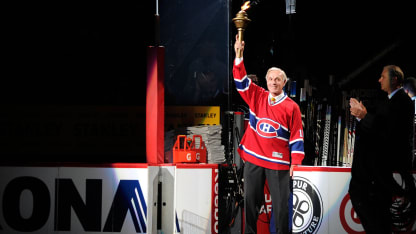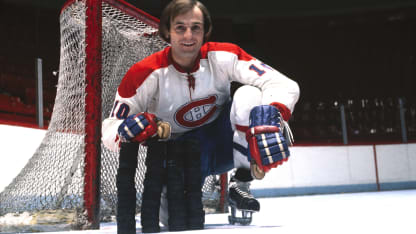"Well, I had my tonsils out," he said with a laugh.
For Montreal fans, Lafleur is an enduring reminder of the Canadiens' glorious 1970s dynasty, an enormously popular figure who can't walk 10 feet in this city, and far beyond, without being stopped for a photo or an autograph.
He won five Stanley Cup championships with the Canadiens that decade, scoring a team-record 518 goals between 1971-85. He scored 42 more for the New York Rangers and Quebec Nordiques from 1988-91, returning to the NHL following a four-year retirement, by then having been elected to the Hockey Hall of Fame.
So it was like an earthquake that the hockey world -- especially the Canadiens and their fans -- felt Lafleur's medical crisis last fall, a legend who forever was viewed as being indestructible now in very fragile health.
Long a helicopter pilot, Lafleur went to his doctor on Sept. 23 for a routine checkup, standard procedure to have his license renewed.
"The doctor looked at my echocardiogram and said, 'You're sick,' "Lafleur said. "I replied, 'No.' And he said, 'Yes, you are. Do you know a cardiologist?' I said, 'Yes, one of my good friends,' and he told me, 'Call him right away.'
"I said, 'What for?' and he repeated, 'Call him right away.' I sent a photo of his notes by phone to Benoit (Coutu, his cardiologist). He called me and said, 'Be at the hospital at 6 o'clock tomorrow morning.'"





